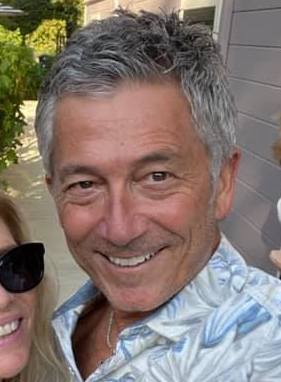Leading up to and immediately following the NFL Draft we will touch down with Ravens’ Director of Player Personnel, Eric DeCosta and gather his thoughts on the dynamic landscape of the NFL and of course the upcoming NFL Draft. We’ll also recap with DeCosta following the draft and collect his thoughts on the newest Ravens.
Tony Lombardi: The NFL Draft is now spread out over four days beginning Thursday April 22 (Round 1); Friday, April 23, (Round 2-3); and Saturday, April 24, (Rounds 4-7). What advantages does that provide a front office like the Ravens? Any disadvantages?
Eric DeCosta: We’ve been prepared for the new scenario for a year now and we like that we’ll have some time each night (Thursday, Friday nights) to evaluate the players still on the board. We think that gives us an advantage when it comes time to restacking our board and making our next picks.
TL: Most teams use scouting services like Blesto to help them populate their draft board. Yet teams like the Ravens, Patriots and Colts prefer to utilize their own scouts. Why?
ED: We train our scouts from a young professional age to learn our scouting system and our approach to player procurement. We trust our scouts and value their opinions more than we would any outside scouting services that are not really familiar with our philosophies. The services themselves [like Blesto] are costly. We prefer to use that money on our scouts. It all comes down to having a process and knowing what you want.
TL: Last year you moved up to select Michael Oher after the Lions picked Brandon Pettigrew a player that you coveted highly. This year a player coming off a knee injury, Jermaine Gresham is another highly touted tight end who might be available with the 25th pick. What do you know about the injury and can you compare Pettigrew and Gresham?
ED: Gresham suffered a knee injury and decided to have a significant surgery to strengthen the structure of the knee long-term to ensure a long playing career. He’s a fine player, probably not the blocker that Pettigrew is but more dangerous in the pass game.
TL: Paul Kruger is a player who didn’t see the field much in ’09 and I’ve heard him referred to as a developmental player. Do you ever consciously draft players based on projected ceilings knowing that they may take a year or two to develop?
ED: Our grading system is based on several different levels. The first level basically asks the question “Is the player a Pro-bowler, a starter, a backup, or a free-agent camp guy?”
The second level breaks the starter and backup categories (the two groups most players fall into) into different levels (i.e. first-year starter like Michael Oher, second-year starter like Ray Rice, potential possible starter over time like Dwan Edwards or Casey Rabach, backup for the Ravens like Haruki Nakamura, or backup for the league).
Our scouts are required to PROJECT players based on their college experience, personality, and background. Unlike a lot of teams, we don’t rank players based on round we would select, we rank players based on role both short-term and long-term. This is a significant difference.
So yes, we draft players with lots different levels of expectations. We don’t expect every player to start day one or even, in some cases, to ever be a starter. We take a more macro approach aimed at building the best possible team. That entails sometimes taking a lesser player with a great makeup who will be a great backup rather than drafting a really good player with a poor makeup who will be a terrible team guy or bad backup.
TL: Fans will look at the Colts and see young productive receivers like rookie Austin Collie and Pierre Garcon and wonder why the Ravens can’t find players like that. How might you address that for fans?
ED: The Colts are led by one of the most successful QBs to play in the past twenty-five years. I look at the Colts as somewhat of an exception, not a rule. I would equate Manning to Ray Lewis in that both players make the players around them so much better.
I’m not sure that Austin Collie comes to Baltimore and has a great impact, kind of like when we see free-agent Ravens go elsewhere and sort of founder. The wildcard in the whole debate is Joe Flacco. While we definitely recognize the need to get better at the receiver position, we also believe that as Joe continues to mature physically and improve as a passer and student of the game, he’ll have a huge impact on our receiver group (whomever they may be) as a whole, like Manning has had on Indy’s offense.










